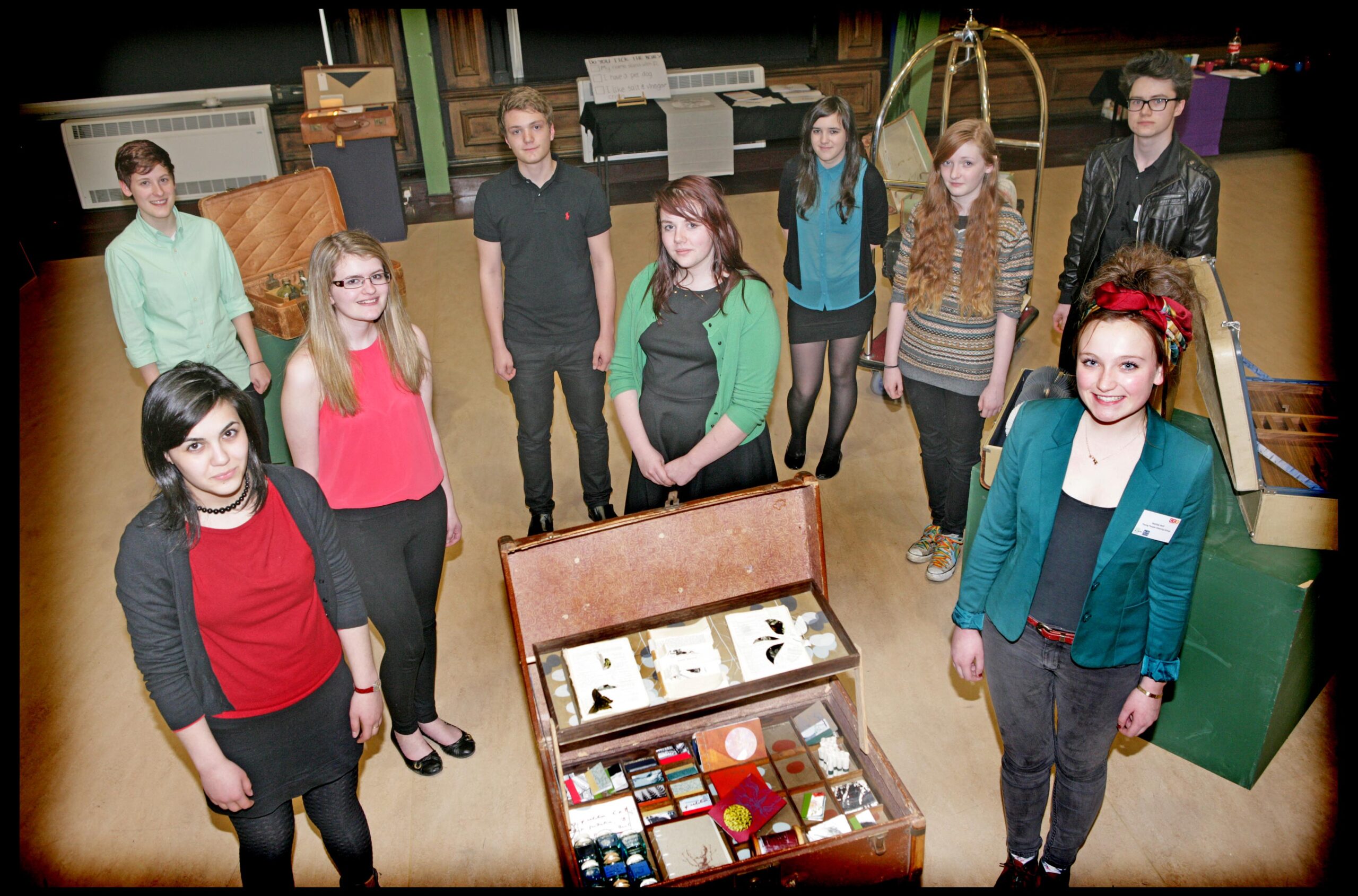
Young people at the launch of their Charter
Photo: Matthew Moore
Good practice Charter
Young people in the north east of England have developed a good practice guide for collaboration between them and the arts, writes Anna Spencer.
In the north east of England 17,000 young people have been working with Regional Youth Work Unit North East (RYWU-NE) to write a Young People’s Charter for Arts and Culture. The development of the Charter began in summer 2012, as NE-Generation, the Legacy Trust UK programme for the north east, considered the future. One thing was clear: people did not want to lose the learning from this distinctive co-production model of commissioning, programme development and project management. In response, we drew together a steering group of young people and cultural practitioners to capture the wealth of knowledge and experience gained and make it available for others.
Young people from the north east were able to achieve in six months what government and statutory bodies have spent years trying to develop
The Charter came into being through a period of consultation to find out what was working well, what were potential areas for development, and what if any useful purpose a charter could serve. The research confirmed there were pockets of excellent practice across the region, but as times became harder and funding scarcer, people were feeling the effects of a reduction in regional and local infrastructure and there was potential for isolation. It seemed timely that the Charter could offer a point of reference and cohesion at a time of uncertainty.
Recognising the unique expertise that young people and cultural practitioners have to offer, we invested time in a development process which allowed new thinking and shared understanding to emerge. The culmination of this process and the Charter in its initial form were publically shared at a launch conference in the spring. The event was hosted and facilitated by the young people involved and was a call to the arts and cultural sector to respond and take ownership of this open source resource and interpret it in their own contexts, committing to reflect on their practice.
A clear impact of the Charter was its ability to raise the profile of the debate around young people’s role in the arts and cultural sector as young representatives gained a place around the national table to contribute to the conversation through conferences, evaluation research and seminars. It is hard to deny the valuable contribution young people have to offer even at the most strategic level when they are presenting well reasoned and insightful opinions about the future for arts and cultural development.
The Charter provides a previously lacking reference point across all different artforms as it allows practitioners to benchmark their work against specific indicators. It identifies those common values which are essential to good practice and as such offers a consistent and flexible basis for comparison to apply to the planning, development and evaluation of services. Its non-prescriptive nature has raised awareness of the need to keep discussing and reflecting on practice rather than adopting a static methodology which is quickly outdated. This democratic approach to development has gained national recognition, winning the NCVYS award for outstanding commitment to young people’s involvement in arts and culture.
One surprising outcome is that the Charter has revealed organisational prejudice and blind spots. For example, some found it difficult to believe that it was written by young people, as it was too eloquent. These opinions came from well reputed organisations, held as beacons of good practice for work with young people, yet in reality they hold a narrow view of their capabilities, and this demonstrates the vital need for rethinking attitudes. There are also practitioners who are reluctant to contemplate that their own practice would benefit from reflection and development, and consider participatory methods and collaboration as irrelevant to their work, particularly when it comes to welcoming young people into more strategic conversations.
The presence of the Charter remains a challenge to the arts and cultural sector, as young people from the north east were able to achieve in six months what government and statutory bodies have spent years trying to develop. The unique understanding, commitment to collaboration and genuine belief in the importance of a resource like this has driven this work forward rather than any sense of duty or obligation.
The Charter was always intended to be a living document and as such is constantly evolving. The group is currently focusing on opportunities to host knowledge exchanges both nationally and internationally, to share what they believe is important and learn from the opinions of others. It is through the facilitation of discussion and development sessions that it is most powerful. The process of wrestling with the themes and interpreting them in a specific situation remains the most beneficial use of the toolkit, as a resource for conversation and reflection.
Anna Spencer is Regional Development Officer for the Regional Youth Work Unit North East.
www.rywu.org.uk
Join the Discussion
You must be logged in to post a comment.